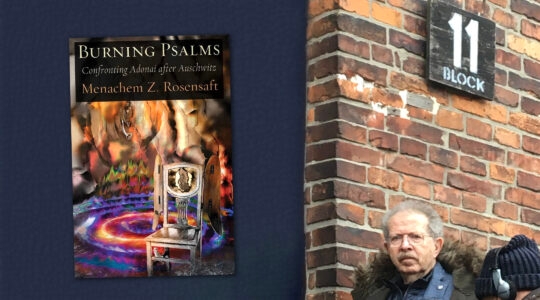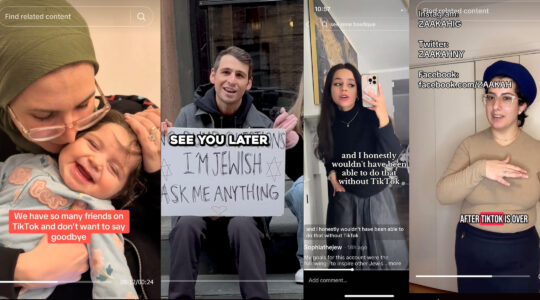Stephen Colbert took aim last week (video below) at the controversy over the Mormon practice of proxy baptism — a ritual that involves living church members dunking on behalf of non-Mormons who have passed away and, as Colbert puts it, were otherwise facing an eternal afterlife with a crummy seat in coach.
The practice has recently grabbed headlines thanks to reports that Mormons had performed such baptisms on several prominent Holocaust victims, including Anne Frank, Simon Wiesenthal’s parents, and Elie Wiesel’s father and grandfather. Wiesel went so far as to call on Mitt Romney to condemn the practice.
On an emotional level, it’s not hard to understand why the practice is upsetting to folks whose relatives were slaughtered by the Nazis.
But compared to where we’ve been, maybe it’s not so bad.
Colbert touches on a point that I’ve been chewing on for some time — given the episodes of violently forced conversions endured by the Jewish people over the centuries, why get so upset over proxy baptisms? Think about it … what if during the Spanish Inquisition, instead of torturing Jews, the Catholic Church had simply converted Catholics pretending to be Jews? We could even expand on the idea — Hamas could blow up buses packed with Palestinian militants pretending to be Israelis.
You call proxy baptism an affront, I call it progress.
And the issue becomes even less theologically alarming when you consider that these are not even forced proxy baptisms. Mormon officials (and Wikipedia) say that ritual does not automatically change the status of the deceased — it simply offers them a choice, a second chance after not taking the plunge during their time among the living.
Is this an issue that Romney should be forced to confront on the campaign trail? It’s an interesting question, with wider implications as the race moves forward, especially since the on-again-off-again GOP frontrunner has had little to say about his religious tradition. On the one hand, unlike Joe Lieberman, who wears his Orthodox Judaism like a yarmulke on his head, Romney rarely talks about being a Mormon, his Mormon beliefs and practices or how, if at all, they inform his views on public policy. So if he hasn’t made it part of his public record, maybe it’s unfair to force him to be the defender of the faith.
On the other hand, he’s not some casual member of the church — he’s been a macher. So maybe Americans have a right to know what makes this guy tick. For what it’s worth, the Democratic establishment — Jewish or otherwise — seems to be taking a pass on this.
I’ll close with this: When I was reporting on the proxy baptism issue for the Forward back in 2002 (sorry, not available online), one Jewish activist said to me something like: "How would they like it if we gave Brigham Young a posthumous bar mitzvah?"
I put the question to one church official. His response: "We’d love it."
JTA has documented Jewish history in real-time for over a century. Keep our journalism strong by joining us in supporting independent, award-winning reporting.





